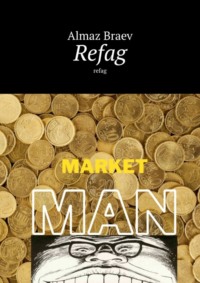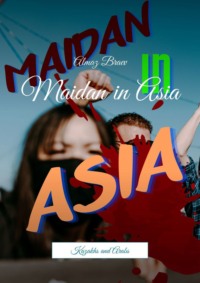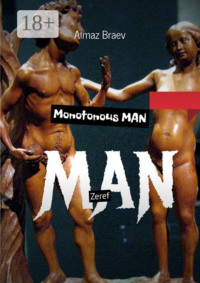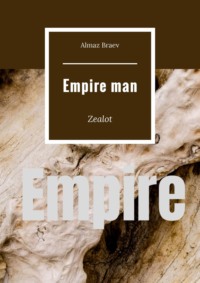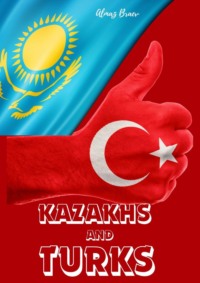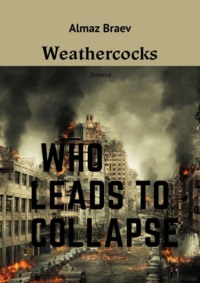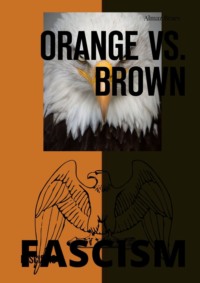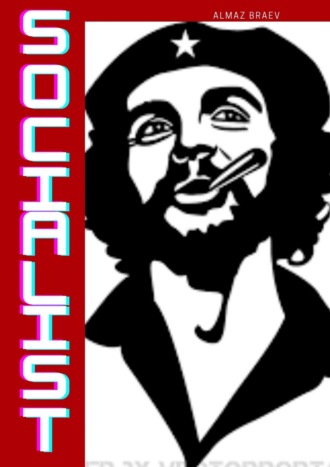
Полная версия
Socialist. Elitism II
Chapter 7
let’s look at Stalin’s associates
Lazar Kaganovich, 1891.
He was born into a family of well-to-do peasants. That is, this is a rural boy from near Kyiv. What does rural mean? This means he is close to the tradition or observed the rites while living with his father. Most likely, the age difference with the father is insignificant. It doesn’t matter to Jews. Jews in Romanov Russia condemned the Tsar’s economic, class, and ethnic – for double oppression. What could prevent them from joining the revolution?
The Stalinist faction, the future updated CPSU (b), consisted of rural boys who grew up on the periphery. If they were all older sons, that is, they obeyed their father without further ado the eldest sons are the most disciplined and responsible but why did they rebel against the system? Against the Russian community. After all, all the older sons would have received an inheritance. But what inheritance will the son receive from a poor father? If you went to the revolution, it means there was nothing to inherit from your father – one of the obvious signs of overpopulation. There are many children, but there is no inheritance (land).
But what is the eldest son for Revcon? This young man is also a future father; that is, he imitates the father, showing all his views. After his father, he is the second head and deputy of his father. The eldest son should not have an opinion; he should fanatically perform rituals and observe tradition. To have the rights in the traditional community, he is obliged to marry and start a family. To start a family, he must have the means and the money. To have money and support a family, he must earn it. If the father is poor, there is no difference between the eldest son and the youngest. There is nothing to inherit from his father. All the property is still passed down to the eldest son. But what can the poor inherit? There was no difference among the Russian peasants between the elder and the younger. Even parents could choose their children’s favorite. The most loved one could also stay in the parent’s house. And those who have nothing to take and inherit went to the city. All the young men without money or inheritance will find a new father in the city.
Such a father of traditional guys could be Stalin. He became a great teacher and leader; all the former village boys were gathered in his office or sat next to his portrait. But not immediately, of course, but after a while: after the revolution and the civil war. Then, all of Stalin’s associates, all those who sat near his portrait, began to lead the USSR. All the nomenclature during the reign of Stalin and after all the time sat near his portraits. Another portrait of the father and of the leader hung from each party boss behind his back. Like all the older sons in the village, the nomenclature had no face. But it was very efficient and disciplined.
Dzhugashvili Vissarion, Stalin’s father, exact born date unknown, circa 1850. Stalin himself was born in 1879. The Difference with father is 29 years. It doesn’t reach 30. But Stalin chose a revolutionary path (a new mountain robber), although his mother Ekaterina wanted Soso to become an Orthodox priest. Joseph left the provincial city of Gori and went to Tiflis. If the age difference with the father is significant, any son becomes a rebel, which goes against the father and the system, which means that he goes against the law. Therefore, Stalin turned out to be a good robber before, a robber of mail coaches with money.
Molotov Vecheslav 1890
He was born in the settlement of Kukarka in the Kukarskaya volost of the Yaransky uyezd of the Vyatka province, the third child in the Scriabin family. Father-Mikhail Prokhorovich Scriabin, from the burghers of Nolinsk, was a clerk in Kukarka. He wrote in a biography, “My grandfather was Prokhor Naumovich, a Nola Philistine. Mother-Anna Yakovlevna Nebogatikova is from a merchant family in the city of Nolinsk. Ten children were born (Mikhail, Viktor, Nikolai, Zinaida, Vladimir, Vyacheslav, Sergey)”.
Stalin’s deputy had no oratorical talent, strong will, or revolutionary energy. Remember storyteller Yershov’s? “The first (son) was smart, a big guy, the middle one this way and that.” Here it is, “this way and that” was Molotov. Of course, by status, after approaching Stalin, he was part of the cohort of favorites and elders, so he also served as the eldest son. And all of Stalin’s associates, too. Obedient and dutiful “eldest sons”.
Molotov’s memories of his father: “he came to see me when I was already working in the Central Committee. He went to churches… he was religious. “And when I was a child, my father beat me like a gray gelding”
The younger ones are never beaten. You should know this. They are pampered. But the older ones are being prepared to replace the elderly. The attitude to them is the strictest. They are prepared for adulthood to observe the rites. Molotov escaped from the provincial hole to the capital of the Empire as the most ordinary “eldest son”. According to indirect signs, Vyacheslav Molotov is the eldest son, although he was the third. But he didn’t follow in his father’s footsteps. He found for himself a leader. He found Stalin.
Nikita Khrushchev was born in 1894 in the village of Kalinovka near Kursk. Father was a miner; if Mother Khrushchev was in 1872, the year of birth, then Father was the same. It turns out that Khrushchev’s father was 24 years old when Nikita was born. The “Eldest son”.
It was no accident that these village boys had risen so high. Their rise and career were written in the tradition of the people. They were raised for the dictatorship. It was not Stalin who raised them so high. This is culture. And Stalin found them. Or they found it. And they forgot their father. As it is, if they stayed in the village, they would be very authoritative farmers. Disciplined guys have grown up to the level of party Communist authorities. They became the fathers of the people. And they were always ready to change their queue number to the most important place, keeping order.
Chapter 8
Why there were fascist putsches
All fascists are defined by xenophobia. All those who hate representatives of other ethnic groups are fascists. All those who are internationalists are also enemies of the fascists. All communists have, therefore, sworn enemies of the fascists. This is a somewhat simplified view, Soviet or communist stereotype. All fascists are conservatives. If certain types of conservatives advocate the preservation of the old order, then the fascists believe in the state and their leader. This leader restores order after democracy.
Consequently, the democrats and liberals are also enemies of the fascists. However, liberals and democrats are the same conditionally rootless people. This is the same faction of marginals. But they have a head start of several generations. Their ancestors had successful careers or made a profit from the family business. You can call the liberals the bourgeoisie out of old habits or call them the middle class, which is firmly on its feet. Every liberal has a big store or other business. If he is an intellectual, a liberal has some privileges or merits. He is willing to tolerate other people’s opinions. In fact, he will not tolerate anything, and he is just a hypocrite. The potential fascists include all small merchants. In any case, the ruined shopkeepers and the intellectuals reduced to poverty support any irritation. The real fascists put the state’s coat of arms on the banner. They believe that there are only thieves in the state apparatus and that mobs of communists threaten the state. The Communists are ready to take away all the property and transfer the profits to various loud and mismatched loafers. In the political dictionaries of Marxists, Fascism is presented as an expression of bourgeois reaction. (By the theory of Revcon, the fascist is an older brother from a patriarchal family because the continuity between generations is visible).
Конец ознакомительного фрагмента.
Текст предоставлен ООО «Литрес».
Прочитайте эту книгу целиком, купив полную легальную версию на Литрес.
Безопасно оплатить книгу можно банковской картой Visa, MasterCard, Maestro, со счета мобильного телефона, с платежного терминала, в салоне МТС или Связной, через PayPal, WebMoney, Яндекс.Деньги, QIWI Кошелек, бонусными картами или другим удобным Вам способом.


